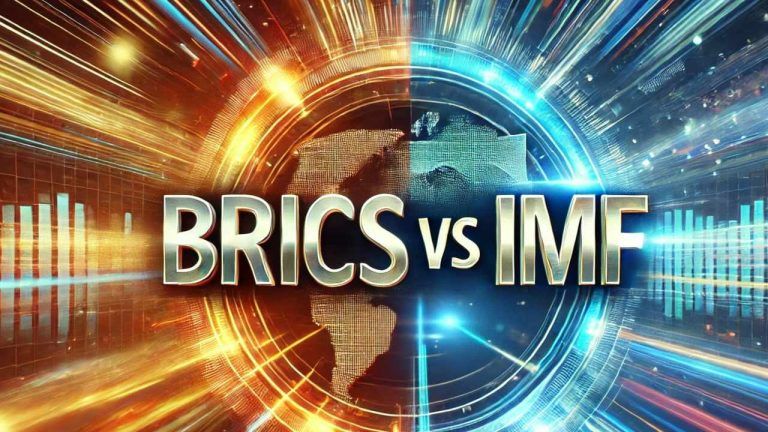
The world of Web3, blockchain, and crypto is rapidly evolving, creating new opportunities and challenges for businesses looking to grow. The decentralized nature of these technologies has opened up unique possibilities in sales and digital marketing. In this article, we’ll explore how sales and digital marketing can work together to thrive in this space, leveraging the benefits of blockchain and Web3 technologies.
Understanding Web3, Blockchain, and Crypto
Before diving into the strategies, it’s essential to understand what makes Web3 different from the Web2 world we’ve grown accustomed to.
- Web3 represents the next evolution of the internet, characterized by decentralization, where users control their data and online interactions. It’s powered by blockchain technology and cryptocurrencies.
- Blockchain is a distributed ledger technology that allows for secure, transparent, and tamper-proof record-keeping. It’s the backbone of most cryptocurrencies and smart contracts.
- Cryptocurrencies are digital assets that use cryptography for secure transactions. They are often decentralized, using blockchain technology to ensure transparency and security.
With these technologies at its core, Web3 enables a new level of transparency, efficiency, and engagement, which can be a game-changer for both sales and digital marketing.
Integrating Sales and Digital Marketing in the Web3 Space
Traditionally, sales and marketing have often been seen as separate entities, with marketing focusing on brand awareness and lead generation, while sales handle the actual conversion of these leads into customers. In the Web3 ecosystem, the line between these two functions is increasingly blurred, and their integration is essential for success. Here’s how they can work together more effectively:
1. Leveraging NFTs for Engagement and Loyalty Programs
Non-fungible tokens (NFTs) are a cornerstone of the Web3 revolution. For digital marketing, NFTs offer a unique way to engage with customers, creating scarcity and value that traditional digital assets cannot match. Sales teams can then leverage these NFTs as incentives or rewards in loyalty programs.
For example, marketers might create limited-edition NFTs tied to a particular product or service. When a customer buys or subscribes to a service, they receive an exclusive NFT, which can be resold, collected, or even used for special discounts. This builds customer loyalty while also driving direct sales engagement.
2. Smart Contracts for Automated Sales Processes
Smart contracts are self-executing contracts where the terms of the agreement are directly written into code. They operate on the blockchain and automatically execute actions when specific conditions are met. This technology can streamline the sales process, reducing friction for both teams.
For sales, smart contracts can handle transactions automatically once a customer meets certain conditions. This eliminates the need for manual interventions, reduces errors, and speeds up the sales cycle. Meanwhile, marketers can utilize smart contracts to automate reward distribution or referral incentives, ensuring that marketing efforts directly contribute to driving sales.
3. Decentralized Marketing with DAOs
Decentralized Autonomous Organizations (DAOs) represent a new way for businesses to operate, where decisions are made by token holders rather than centralized executives. DAOs are becoming popular in the Web3 community because they allow for a community-driven approach to business growth.
Marketers can leverage DAOs to build and engage communities around a product or brand. By giving customers a stake in the decision-making process, sales teams benefit from a more engaged customer base that’s motivated to promote the product. This creates a seamless flow between marketing efforts and sales conversions, as customers who feel empowered are more likely to invest in the product.
4. Data Transparency and Trust Building
One of the biggest challenges in traditional digital marketing is gaining consumer trust, especially when it comes to data usage. Blockchain technology offers a solution by providing transparent and secure ways to manage data.
For marketers, this means the ability to demonstrate to users exactly how their data is being used, leading to more trust and engagement. On the sales side, a transparent approach reduces barriers to closing deals, as customers feel more comfortable with the buying process when they know their information is secure.
5. Using Crypto Payments to Expand Market Reach
Adopting cryptocurrency payments can be a major advantage in the sales funnel. It enables businesses to reach global audiences without the hassle of traditional currency exchanges and financial institutions. This flexibility can attract tech-savvy customers who prefer using digital currencies.
Digital marketers can also leverage this trend by offering promotions or discounts for crypto payments, driving both awareness and sales conversions. Accepting various cryptocurrencies in the sales process also opens the door to a wider audience, increasing potential leads and conversions.

Challenges to Consider
While the opportunities are vast, it’s also essential to recognize the challenges that come with integrating sales and digital marketing in the Web3 space:
- Regulatory Uncertainty: The legal landscape for blockchain and crypto is still evolving, and businesses need to stay up-to-date on regulations in their target markets.
- Technical Complexity: The technology behind Web3, blockchain, and smart contracts can be complex, requiring businesses to invest in the right expertise.
- Market Volatility: Cryptocurrencies are known for their price volatility, which can pose risks in pricing strategies and transactions.
Despite these challenges, businesses that adapt and align their sales and marketing strategies to the Web3 paradigm stand to gain significantly.
Conclusion
The Web3 and blockchain landscape is reshaping how sales and digital marketing teams work together. By leveraging NFTs, smart contracts, DAOs, and cryptocurrency payments, businesses can create a seamless integration between these two functions. This approach not only drives more efficient sales processes but also fosters deeper customer engagement, loyalty, and trust.
As the Web3 space continues to grow, the collaboration between sales and digital marketing will become even more critical. The key to success lies in understanding these technologies and using them to build transparent, community-driven, and efficient strategies.

Useful Links
- [What is Web3 and Why It Matters](https://ethereum.org/en/web3/)
- [Understanding NFTs and Their Role in Marketing](https://www.forbes.com/sites/forbesagencycouncil/2021/10/04/how-nfts-are-changing-the-future-of-digital-marketing/)
- [Smart Contracts Explained](https://www.investopedia.com/terms/s/smart-contracts.asp)
- [A Beginner’s Guide to Decentralized Autonomous Organizations (DAOs)](https://decrypt.co/resources/what-is-a-dao)
- [Crypto Payments: A Guide for Businesses](https://www.coindesk.com/learn/how-to-accept-bitcoin-and-other-crypto-payments/)
How Sales and Digital Marketing Can Work Together in the Web3/Blockchain/Crypto Space was originally published in The Capital on Medium, where people are continuing the conversation by highlighting and responding to this story.

 3 hours ago
10
3 hours ago
10






 English (US) ·
English (US) ·